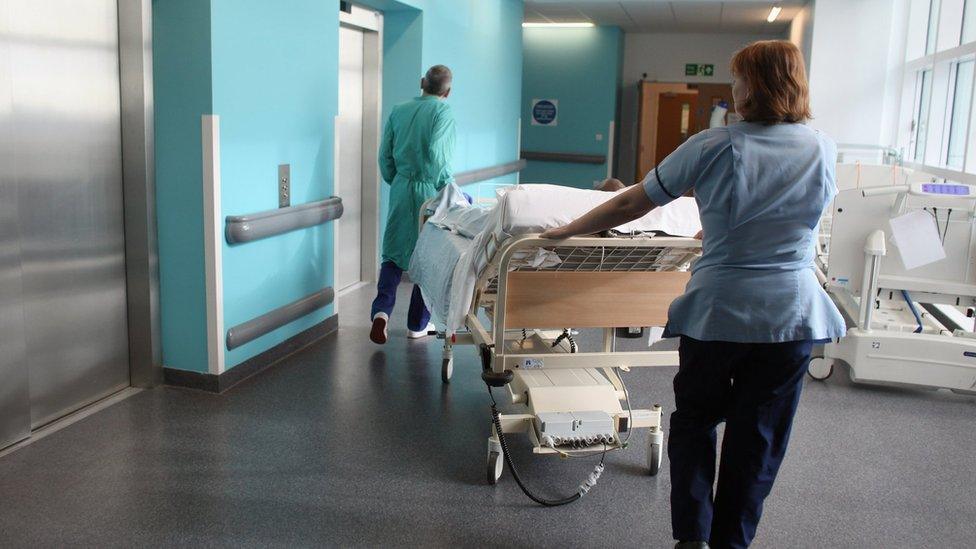Stand by for a quiet revolution in the NHS
- Published

There is a quiet revolution happening in the NHS in England. It's under the radar and has been little commented on till now.
Details of the potentially radical changes will emerge at the end of March.
There is, apparently, no need for new legislation.
In effect, the controversial health reforms of 2012 will be bypassed in some parts of England.
Simon Stevens, head of NHS England, will unveil his thinking in late March but he has given some clues to MPs on the Public Accounts Committee.
His aim in some areas is to abolish a fundamental feature of the structure of the NHS in England - what's known as the purchaser/provider split.
Health reforms by the Conservative government in the early 1990s created a divide between "purchasers", which have evolved into the current Clinical Commissioning Groups, and "providers", which are the hospitals and other trusts.
Purchasers control budgets allocated by NHS England and commission care on behalf of their local patients. Providers deliver that care in return for a fee known as the tariff.
The theory was that the split would deliver value for money with purchasers shopping around for care provision.
Joined-up care
But critics now say that there are tensions which impede an efficient use of resources.
Simon Stevens has signalled the end of the purchaser-provider split
Hospitals, so they argue, are incentivised to get as many patients through their doors as they can to generate income. This pulls against moves to treat more people outside hospitals.
Mr Stevens wants to see local health economies run as single entities with no purchaser/provider split.
The pioneers will be the most successful Sustainability and Transformation Plans (STPs).
These plans have been put together in 44 areas of England involving health and social care chiefs trying to work out the best use of their joint resources in the face of rising patient demand.
Half a dozen, or possibly more STPs, which have already started evolving into management bodies, will be unveiled as the first of this new breed of health organisations, which will both set local health priorities and manage local services.
Joined-up care will be the mantra. Crucially they will be given so called "capitation" budgets. This will be a set sum per person in that area, regardless of whether they need care or not.
This model is used in parts of other countries, including Valencia in Spain.
To use another piece of jargon, there are "accountable care organisations". A key feature is the built-in incentive to keep people out of hospitals.
If managers are receiving the same amount of money each year for every local resident whatever their state of health, so the theory goes, they will be more inclined to treat people away from hospitals where possible.
The Clinical Commissioning Groups, a key part of the structure set up by the then Health Secretary Andrew Lansley in 2012, will, in effect, be sidelined in these new local care models.
Decision-making power on health spending, covering hospital and community care, will be concentrated in single organisations.
The leadership of NHS England, it seems, is confident these changes can be implemented within the existing legal parameters.
No big bang new legislation will be required. So the health service in parts of England will look very different from how the NHS works in others.
The idea is that the fastest ships in the convoy will lead the way and other areas can catch up when appropriate.
No ideological barriers
Ministers, I am told, are ready to go along with this process as long as it can be shown to work effectively.
There are no ideological hang-ups in government, it seems, and pragmatic moves to make health and social care work better are the priority in Whitehall.
What we don't know is how MPs will react when it becomes clear that such important changes are happening without full parliamentary debate.
Some on the left of the health debate believe that accountable care organisations are a Trojan horse for privatisation.
They argue that the process will lead to further fragmentation of the NHS. There has already been opposition to the STP process, seen by some as a cover for cuts.
It may all sound rather technical and interesting only to policy wonks.
But this is potentially the biggest change of its kind in a quarter of a century. Watch this space at the end of March.